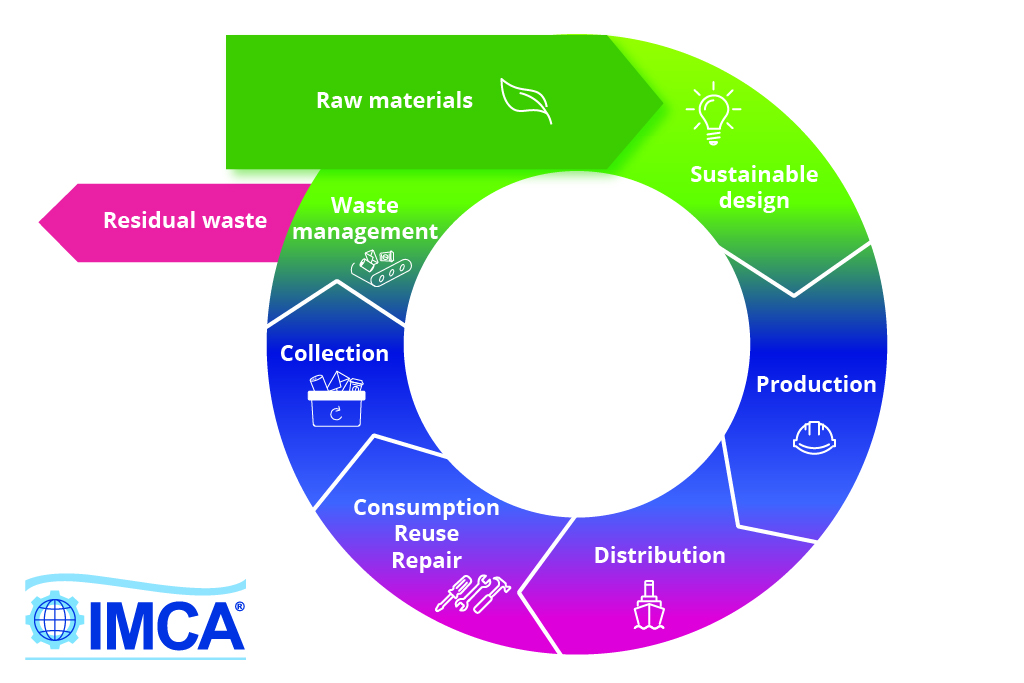Circular Economy principles support Members on their sustainability journey
Published on 20 February 2024
New Guidance from IMCA on the Circular Economy (CE), Practical guidance to implement the circular economy principles (IMCA ES003), supports Members to take their first steps in Circularity – key to making positive progress on sustainability.
According to the World Economic Forum (WEF) only 9% of raw extracted materials are reused, with nearly two-thirds (62%) of global Greenhouse Gasses produced during their extraction. Worldwide consumption of raw materials has tripled since 1970 and is set to double again in the next 25 years.
The Circular Economy aims to reassess our use of all types of products so that they do not become waste at the end of their usefulness, but are kept in circulation through reuse, repair, remanufacture, and as a very last step, recycling or composting. The circular model helps to combat biodiversity loss, waste, and pollution.


IMCA Contact
Mary Ntamark
Technical Adviser – Environmental Sustainability
Contact
In the current context of ecosystem and resource depletion, and increased demands from a range of stakeholders, including clients and colleagues, businesses need to consider the introduction of closed-loop systems in their day-to-day practices – transitioning from a ‘make-use-discard’ model to a ‘cradle-to-cradle’ one.
Organisations that have successfully introduced the concept have limited the depletion of finite resources, reduced waste, improved their energy efficiency, and lowered their carbon footprint. All of which have also had positive impacts on the financial bottom-line. Successfully applied in businesses across the globe, this could unlock a potential $4.5 trillion-dollar opportunity.
This new Guidance provides Members with both the theoretical background and practical support to define and design manufacturing and operational practices within their organisation and engage positively with their supply chain. Produced at the request of IMCA membership, it includes case studies from Members including TechnipFMC, DEME, and SBM Offshore sharing the lessons they learned on their own circularity journey.
Mary Ntamark, Technical Adviser – Environmental Sustainability, IMCA said: “The first document on Circular Economy specifically aimed at the offshore industry builds on our promise to provide Members with the support they need to meet new environmental and sustainability ambitions, goals, and targets.”
“The document will encourage Members to jump-start their Circular Economy journey and the real-life examples will reduce trial and error through the sharing of tried and tested approaches.”
“The Guidance also demonstrates that a shift from a more traditional linear approach to a circular model is possible, and has the amazing potential to streamline operations, cut down on waste generation and emissions, and generate positive impacts for both the planet and the financial bottom line.”
IMCA ES003 works in conjunction with IMCA’s soon to be updated Code of Practice for Environmental Sustainability, which features a dedicated section on implementing circularity in waste management and end-of-life assets as a further way of supporting Members reduce their environmental footprint.
